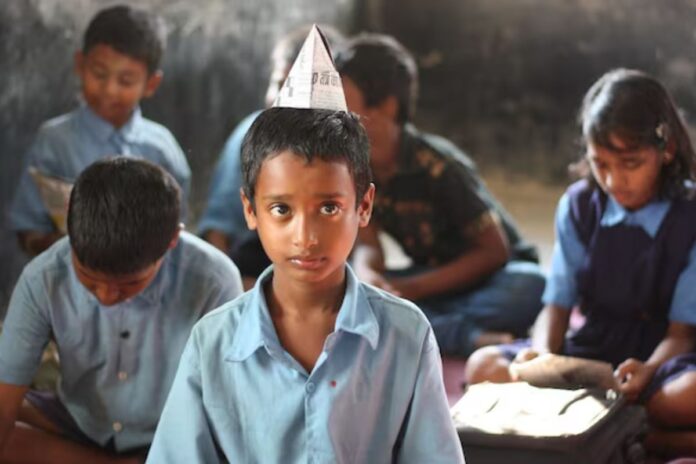In a major shift in education policy, the central government has abolished the “No Detention Policy,” allowing students in Classes 5 and 8 to be held back if they fail their annual examinations. The decision, confirmed by Sanjay Kumar, Secretary of the Department of School Education & Literacy, marks a significant amendment to the Right of Children to Free and Compulsory Education (RTE) Rules, 2010.
Students who fail their year-end exams will have one opportunity to retake them within two months. If they fail again, they will not be promoted to the next grade. However, the government assured that no student would be expelled before completing elementary education.
Policy Overhaul to Boost Learning Outcomes
Announced through an official notification, the policy change affects over 3,000 central government schools, including Kendriya Vidyalayas, Navodaya Vidyalayas, and Sainik Schools. According to Kumar, the decision aims to improve learning outcomes among students.
“The Ministry of Education has taken a big decision and abolished the ‘No Detention Policy.’ Students who fail the annual examination in Classes 5 and 8 will be failed. They will have a chance to retake the test within two months, but if they fail again, they will not be promoted,” Kumar said in a statement on X (formerly Twitter).
The decision reverses a 2019 amendment to the RTE Act, which had introduced the provision for states to decide on continuing or abolishing the ‘No Detention Policy.’ While some states retained the policy, 16 states and two union territories, including Delhi, had already done away with it, citing the need for improved learning standards.
What This Means for Students?
Under the new rules, students who fail their exams will undergo a re-assessment within two months. If they do not meet the promotion criteria after this second chance, they will remain in the same grade. This decision applies specifically to Classes 5 and 8, which are considered pivotal stages in a child’s education.
“If the child appearing in the re-examination fails to fulfill the promotion criteria again, they shall be held back in fifth or eighth class, as the case may be,” stated the notification.
The central government emphasized that this change is intended to encourage better academic performance and reduce the widespread issue of grade inflation caused by automatic promotions.
Support Measures for Struggling Students
To ensure that students held back receive adequate support, the government has mandated additional guidance from teachers. Teachers will identify learning gaps and provide specialized inputs to help students catch up academically. The class teacher will also guide parents on how to support their child’s learning journey.
“During the holding back of the child, the class teacher shall guide the child as well as the parents, if necessary, and provide specialized inputs after identifying the learning gaps at various stages of assessment,” the notification highlighted.
A Mixed Approach Across States
While education is a state subject, the central government’s decision leaves room for states to decide their approach. Some states have chosen to continue with the ‘No Detention Policy,’ while others, including Haryana and Puducherry, are yet to finalize their stance.
“Since school education is a state subject, states can make their own decisions in this regard,” a senior official explained. “Already 16 states and 2 UTs, including Delhi, have done away with the no-detention policy for these two classes.”
This decentralized approach allows states to adopt policies suited to their specific educational environments. For instance, states that have already abolished the policy have reported improved focus on academic rigor and learning outcomes, according to ministry officials.
Implications for Indian Education
The abolition of the ‘No Detention Policy’ is seen as a step toward addressing the challenges of declining academic standards in schools. Critics of the previous policy argued that automatic promotion led to complacency among students and teachers, ultimately affecting the quality of education.
With this new framework, students in Classes 5 and 8 will face greater accountability for their academic performance. Education experts believe this move will encourage a more disciplined approach to learning while providing necessary support for those who need it.
However, some educators and child welfare advocates caution that holding students back could have psychological effects and stress on young learners. They emphasize the importance of balancing academic accountability with emotional well-being and personalized support.
Looking Ahead
As the central government implements this significant change, the focus will be on ensuring that schools, teachers, and parents collaborate to support students during this transition. By addressing learning gaps and providing targeted interventions, the policy aims to enhance the overall educational experience and prepare students for future academic challenges.
While the policy signals a departure from the past, its success will depend on effective implementation and continued efforts to prioritize both learning outcomes and the well-being of students.

